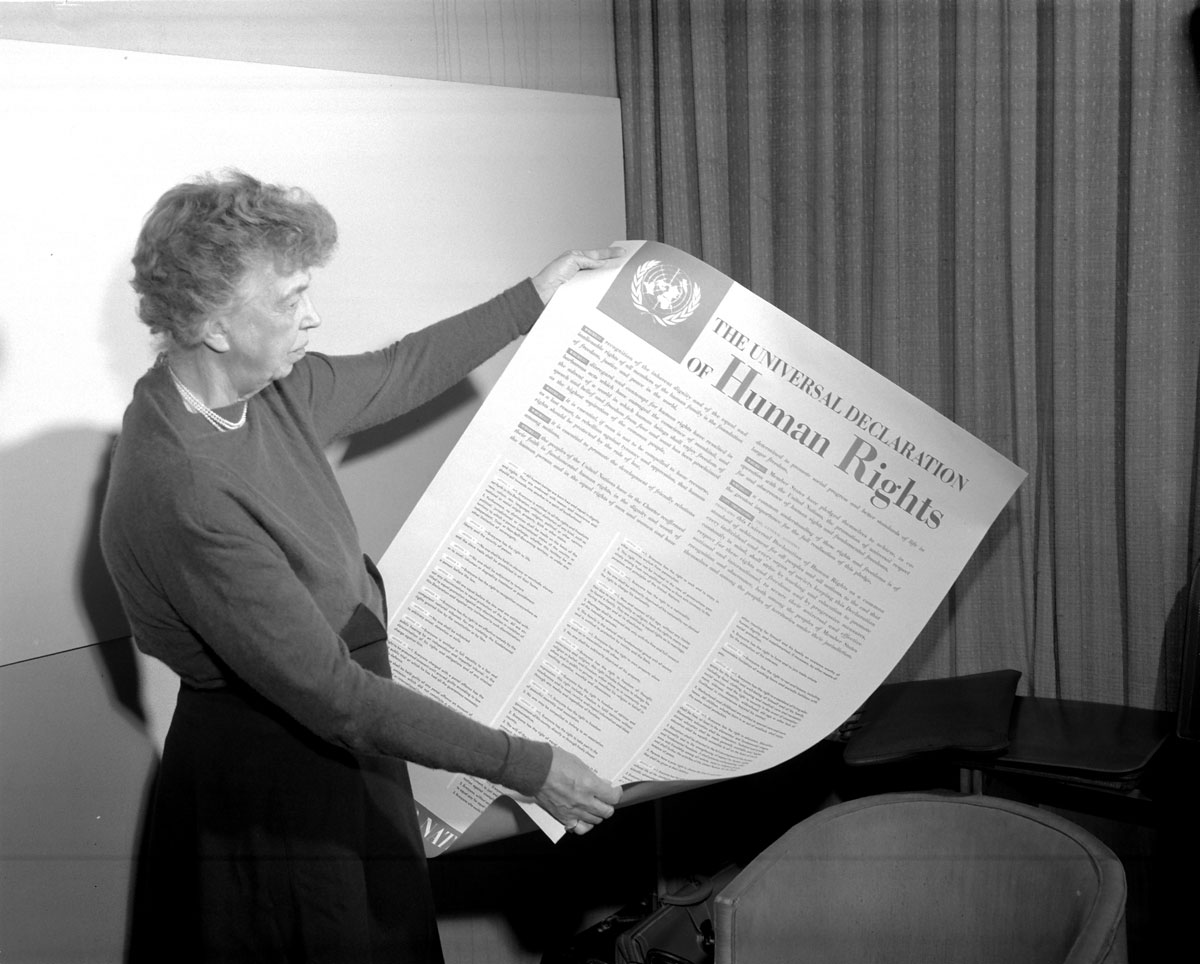Human Rights Day: A Growing Need To Revisit The Universal Declaration
BENGALURU: The United Nations was constituted in the aftermath of the Second World War by the world leaders then with the aim to avoid a conflict of such magnitude repeating itself. A roadmap was laid down by them to guarantee the rights of individuals across the world. The Universal Declaration of Human Rights (UDHR) came about in an effort to complement the UN Charter of 1945 which was the foundational treaty of the United Nations.
The UDHR was first discussed by the UN General Assembly in 1946 and the first draft of it was proposed in September 1948. In the same year, during the General Assembly held in Paris on December 10, the Declaration was passed and adopted. However, it was only in 1950 that Human Rights Day was first formally incepted, after the General Assembly passed a resolution inviting all States to observe December 10 as Human Rights Day.
Each year, on the occasion of World Human Rights Day, there is a theme, on the lines of which there are several events, celebrations, discussions and conferences held across the world. This year the call is for ‘everyone to stand up for someone’s rights!’ In the present scenario, however, it is the UN as a global organisation which needs to stand up for everyone’s rights.
When the Declaration was first adopted it was proclaimed as a ‘common standard of achievement for all peoples and all nations’, towards which society and individuals shall ‘strive by progressive measures, national and international, to secure their universal and effective recognition and observance.’ However, in the present global scenario, there seems to be a collective failure in ‘striving’ towards these ‘progressive measures.’
In the wake of increased conflict, hate and intolerance; refugee crisis; threat of climate change; growing disparity and displacement; struggling economies and the looming threat of fascism, there is perhaps a need to revisit the Universal Declaration of Human Rights and rigorously ensure its implementation. The objectives of the Declaration were in the pursuit of making the world a safer space for all individuals irrespective of their class, age, gender, disability, nationality, economic background, political affiliation, etc. Ironically, in this age of ‘globalisation’ where it is often said that the lines between national and international spaces are blurring and you often hear phrases like ‘the local is global’, there seems to be a growing and aggressive assertion of territory, political ideology and identity, which can been seen dividing the world into various factions.
The United Nations which is primarily an intergovernmental organisation has failed even after almost seven decades of its existence, to ensure that basic standards of Human Rights are met across the world. Human Rights as a skeletal and foundational framework for formulating national and international policy have been ignored by several groups and governments. The ongoing refugee crisis is perhaps the best example of how UN and world leaders have failed in their commitment; and with the ugly head of fascism rising across continents- one can only expect these violations to become worse if not addressed immediately.
As Ms. Maja Daruwala, Senior Advisor at the Commonwealth Human Rights Initiative puts it, the UDHR is the ‘bulwark against tyrants.’ Growing violence and factionalism has placed the world at a precarious point in history, which often makes it appear as though we are at the brink of another World War, therefore making it imperative that we further build upon and strengthen this bulwark, rather than to dismiss it. She goes on to say, ‘Those who decry and disrespect human rights, what is the alternative they have to offer? It has been 66 years since the world agreed to abide by the universal declaration of human rights. India helped to craft it. Since then we have seen an era of relative peace and great advancement and prosperity: also of women's rights. Human rights are a great defence against abuse of others by those who hold power. It is the little person's shield. We must preserve it and enhance it at every turn. Those who speak against human rights forget it shelters them from oppression violence and unfairness as well. They should not try so hard to break down the house that shelters us all in a crowded interconnected world.’
While the United Nations has been fulfilling its role in providing aid and humanitarian relief, it has failed to manage the overall crisis. The larger socio – economic and cultural issues which lie at the heart of the crises across the world are a result of, among many other things, poorly built mechanism to ensure worldwide implementation and basic standards of human rights.
In the backdrop of these unfortunate events and developments across the world it becomes more pertinent now than ever before that the United Nations and international leadership revisit the Universal Declaration on Human Rights and reflect upon the prevailing circumstances and work more fiercely towards achieving basic human rights all for.
Although, merely revisiting the Declaration will not suffice; nations – individually and collectively – with a sense of urgency need to work towards fighting these violations. Also, in the prevailing times, it becomes vital that international and national policy decisions are firmly grounded within the human rights framework, alongside which the UN as an international organisation has to work more efficiently too.
As Anthony Banbury, former UN assistant secretary general of field support wrote ‘the organization (UN) is a Remington typewriter in a smartphone world. If it is going to advance the causes of peace, human rights, development and the climate, it needs a leader genuinely committed to reform’ – who at present is nowhere to be seen. Thus making it all the more important for the UN to up its ante in ensuring that the rights of all individuals across the world are not threatened or in jeopardy – by civil groups , governments or another country.





